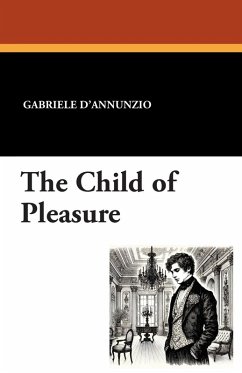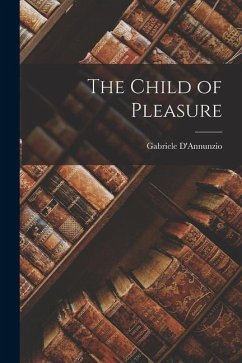
The Child of Pleasure
Versandkostenfrei!
Versandfertig in 1-2 Wochen
19,99 €
inkl. MwSt.
Weitere Ausgaben:

PAYBACK Punkte
10 °P sammeln!
The Child of Pleasure delves into the decadent and sensual world of 19th century high society in Rome, following the life of Andrea Sperelli, a young aristocrat consumed by the pursuit of beauty, art, and pleasure. Torn between his former lover and a new romantic obsession, he spirals deeper into a life of indulgence and emotional turmoil. A reflection on love, desire, and the fleeting nature of beauty, the story explores the complexities of human passion. Gabriele D'Annunzio (1863-1938) was an Italian poet, journalist, novelist, and dramatist. His influence on the Fascist movement has made hi...
The Child of Pleasure delves into the decadent and sensual world of 19th century high society in Rome, following the life of Andrea Sperelli, a young aristocrat consumed by the pursuit of beauty, art, and pleasure. Torn between his former lover and a new romantic obsession, he spirals deeper into a life of indulgence and emotional turmoil. A reflection on love, desire, and the fleeting nature of beauty, the story explores the complexities of human passion. Gabriele D'Annunzio (1863-1938) was an Italian poet, journalist, novelist, and dramatist. His influence on the Fascist movement has made his works controversial.












